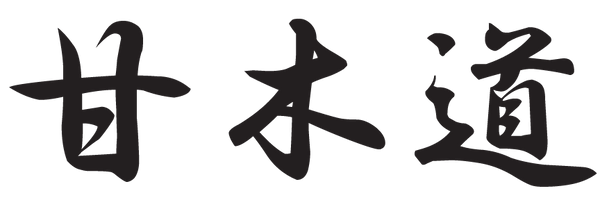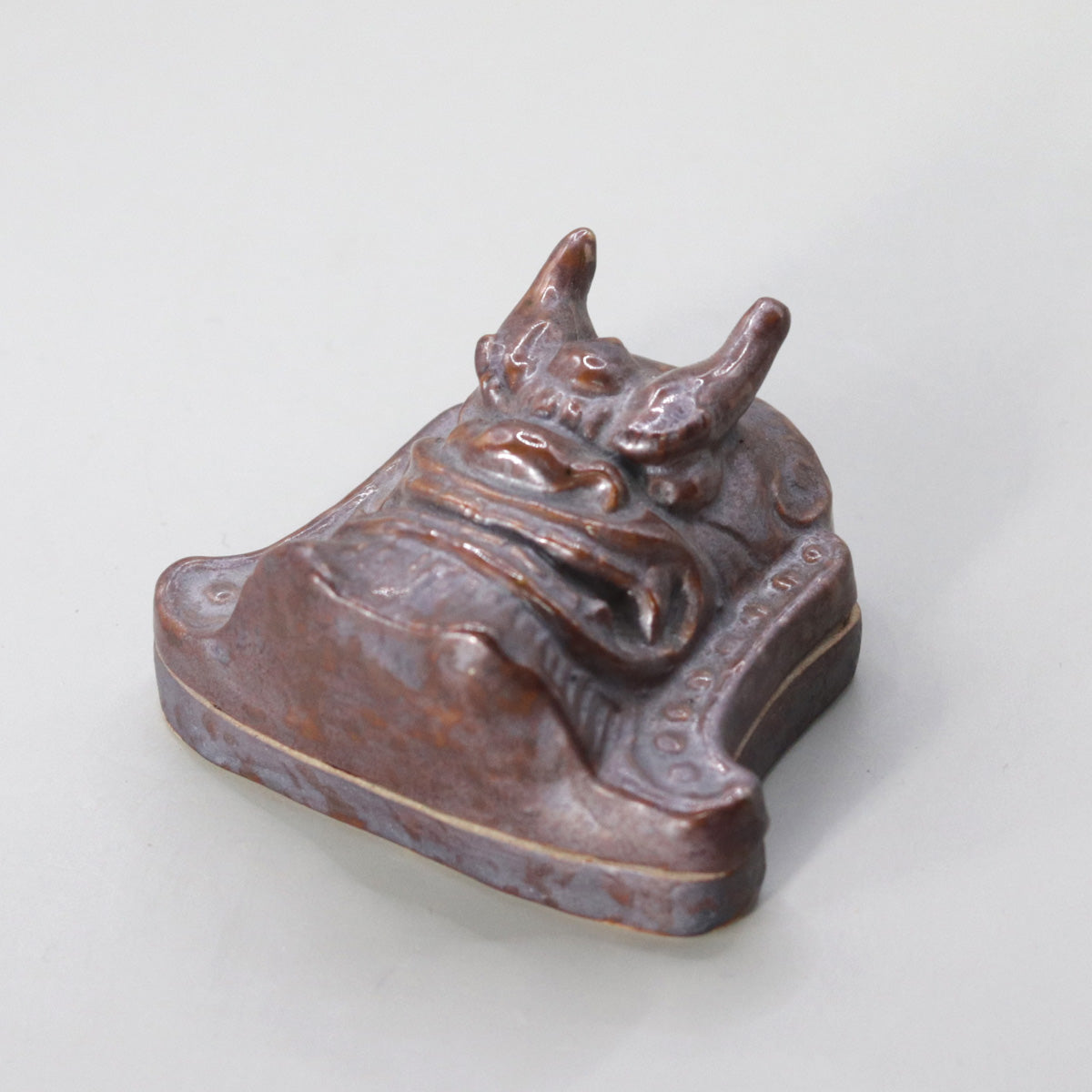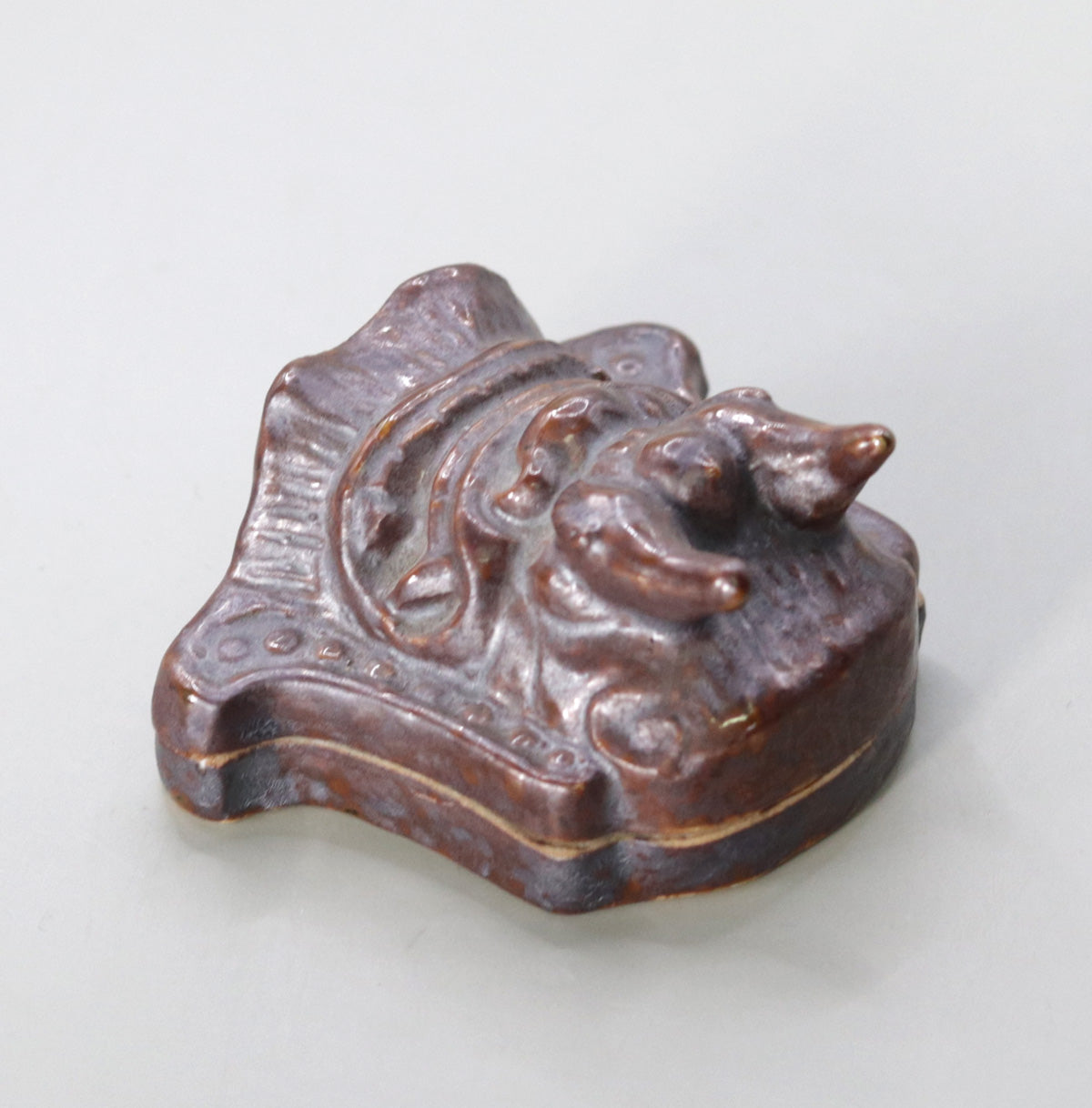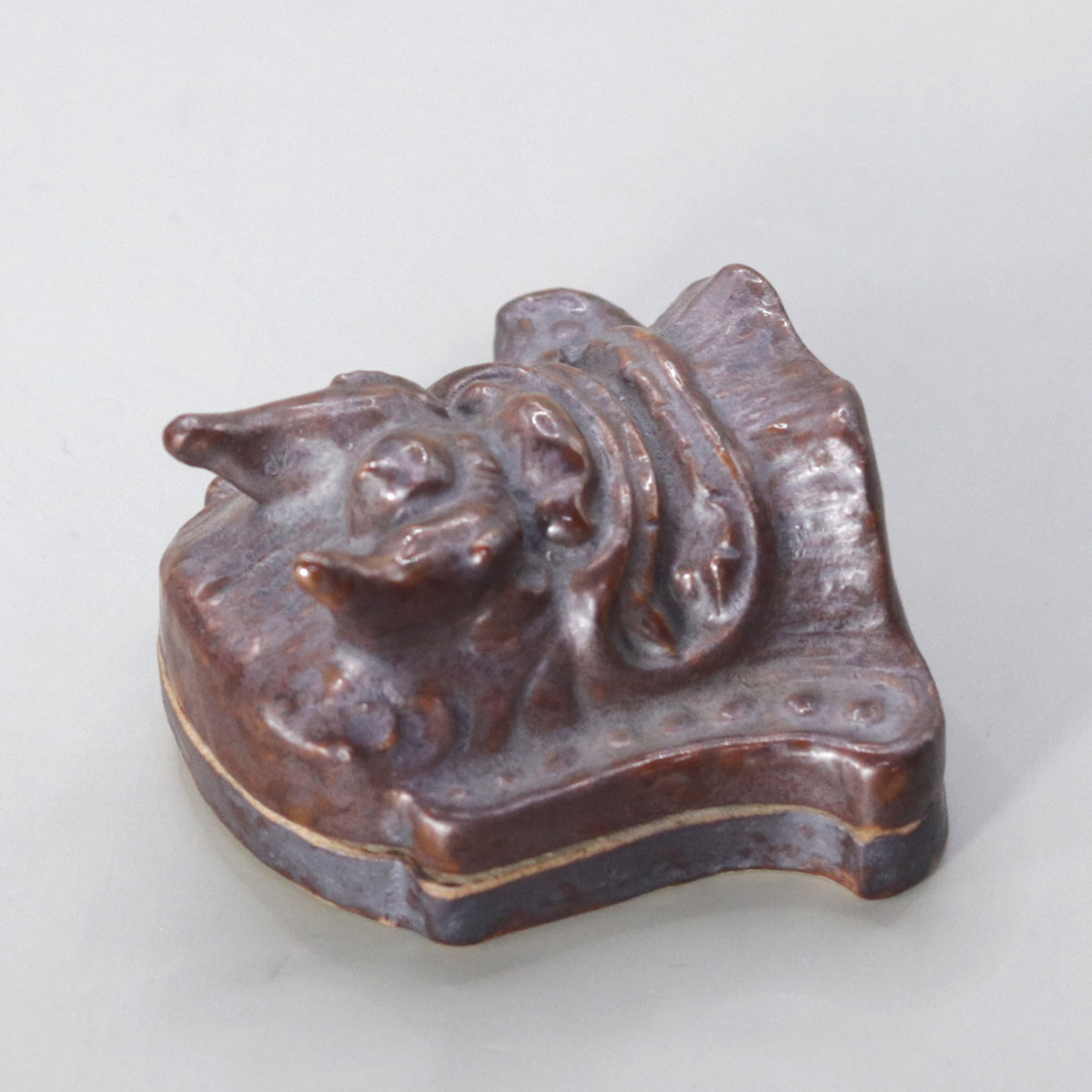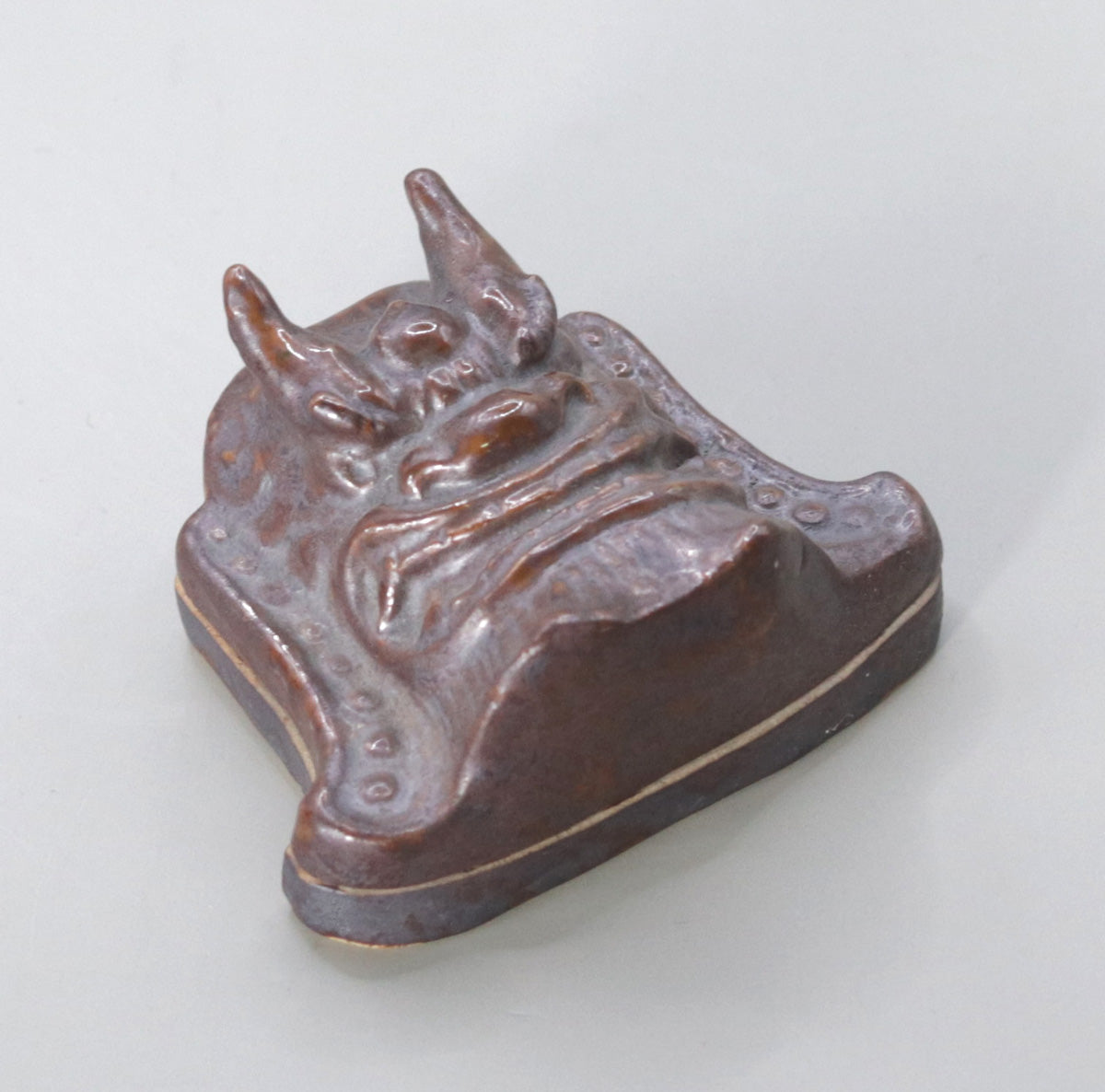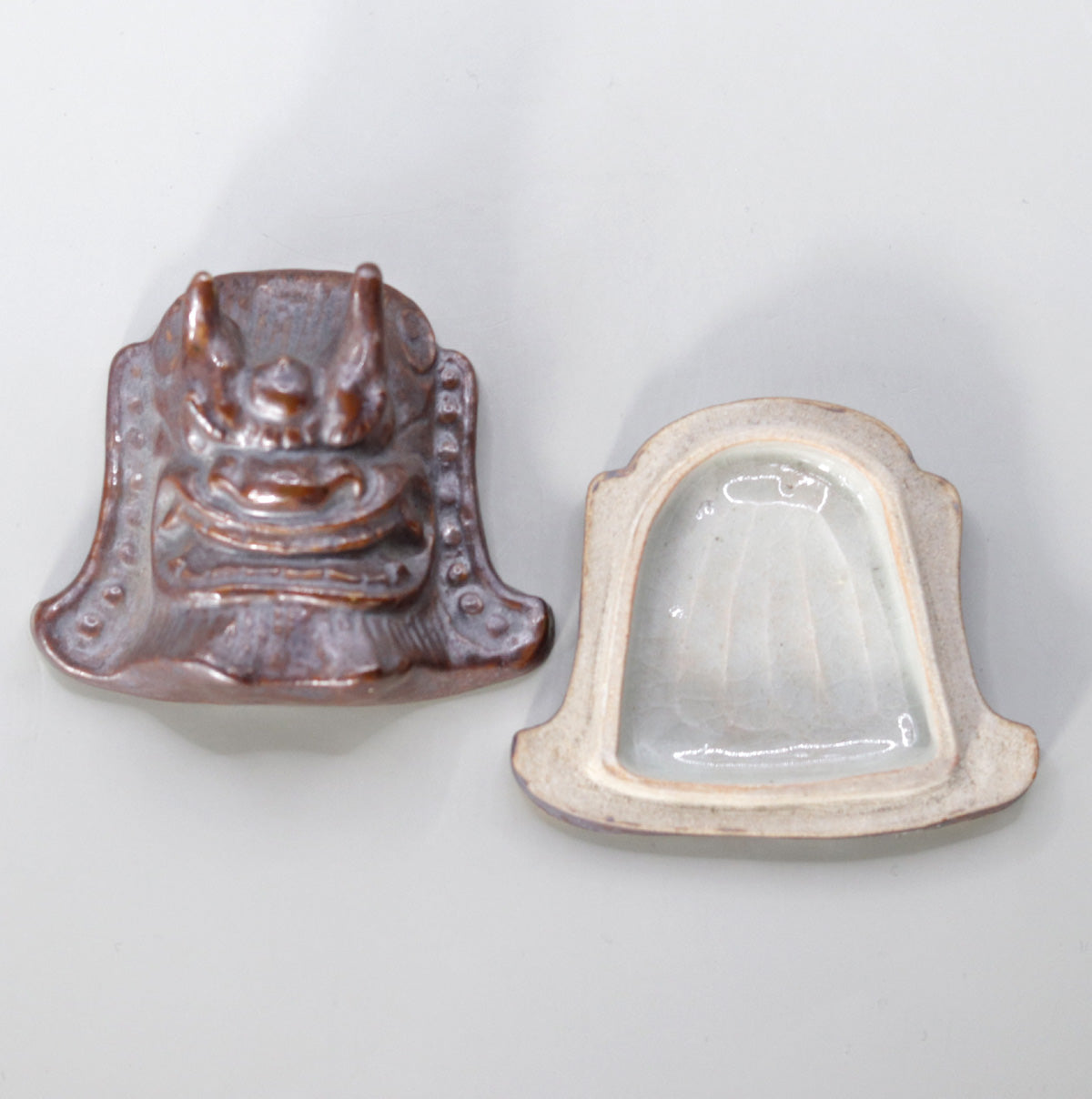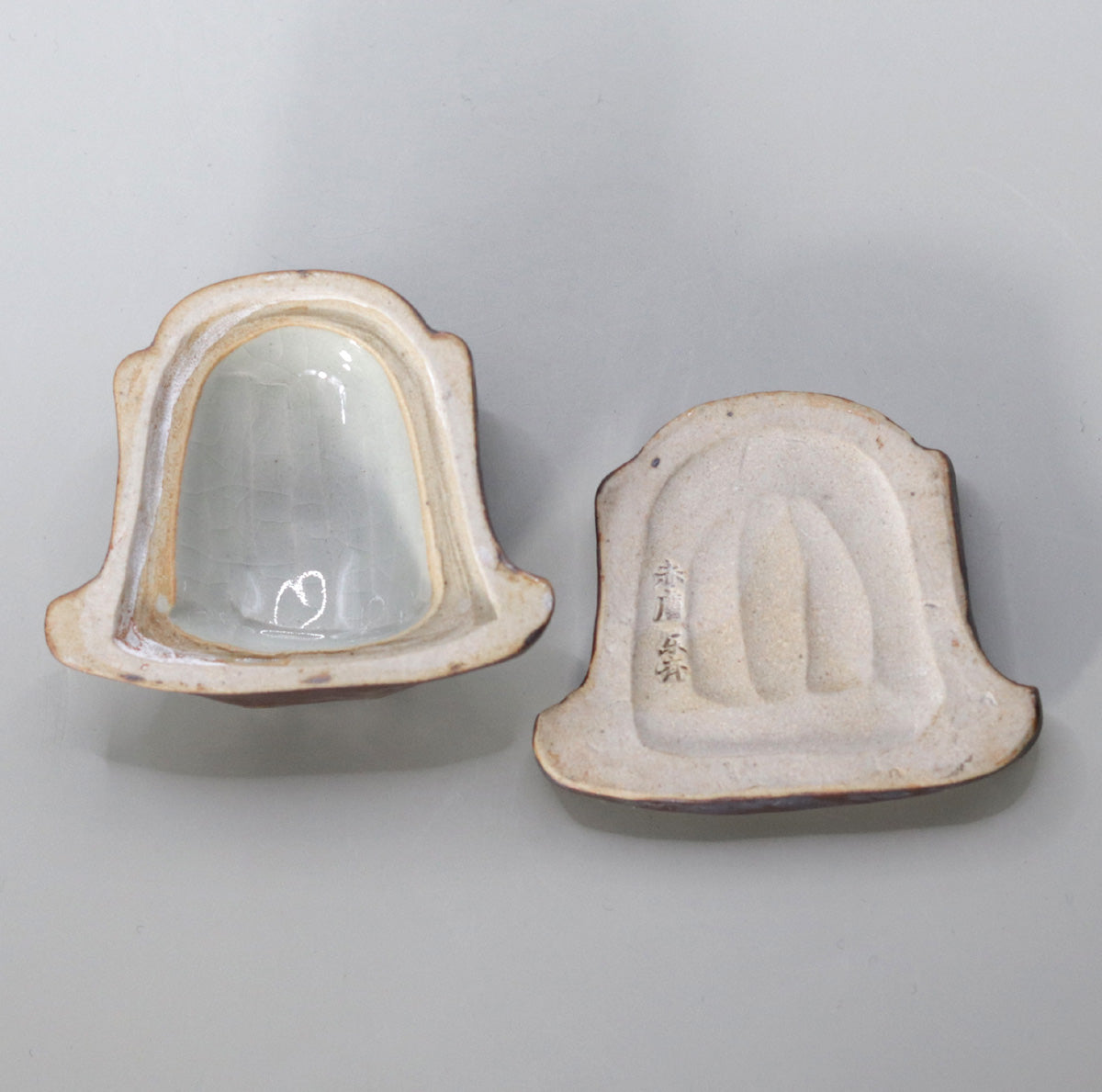Onigawara incense holder by Rakusai Bisai
Onigawara incense holder by Rakusai Bisai
Couldn't load pickup availability
Width: 5.9cm x 7.0cm Height: 3.5cm
Onigawara incense holder (made by Onishi Rakusai)
--The majestic figure of the demon-warding tile demon resides in the palm of your hand--
1. Overview of the work
This is a tile-shaped incense container made by the master of Akahada ware from Nara, Onishiro Rakusai . The cross section of the tile protecting the ridge of the roof is condensed to about 7 cm square, and the upper tile is the lid, while the base is the body, making it a two-part structure that can hold incense and pieces of aloeswood. The rough iron-brown glaze has purple-brown kiln changes running through it, and its appeal is reminiscent of the surface of a tile that has been exposed to the wind and rain for many years.
2. Features of the design
| part | design | Viewing points |
|---|---|---|
| horn/ear | Two protruding horns and earlobes | It symbolizes the strength to glare at the flames and ward off disaster. |
| Eyes, eyebrows, mouth | Deeply carved and engorged facial expression | Although the expression appears menacing, it also has a certain humor to it, creating a relaxed atmosphere at the tea ceremony. |
| pedestal | A cross-section showing the roof tiles on the ridge | The lid is hidden within the step of the base, maintaining a unified appearance. |
3. Techniques and glaze tones
Layers of iron-brown glaze <br data-start="504" data-end="507">A thick layer of iron-rich glaze is applied to the red clay, then reduced-fired at 1240℃, causing the color to change from brown to dark purple. The fine speckles are reminiscent of the surface of fired tiles.
Sculpting <br data-start="582" data-end="585">The pot is carved out of a lump of clay, and the lid is trimmed when it is half dry. The joint is carefully ground together to ensure smooth opening and closing.
Inlaid Line Engraving<br data-start="654" data-end="657">Shallow lines are engraved with a thin bamboo spatula on the area between the eyebrows and on the beard, and the shadows created by the glaze pools accentuate the three-dimensional effect.
4. The origin of onigawara and talismans
Onigawara were introduced to Japan along with continental culture during the Nara period, and were placed on the ridge of roofs with the idea of "protecting the house by making terrifying demons your ally." They also cover the cut ends of ridge beams to prevent rainwater from entering. Even today, they are used as symbols of protection against evil, fire, and misfortune, and their designs vary widely, including demon masks, waves, clouds, cranes, and turtles.
5. Arrangements at the tea ceremony
| Season and taste | stem/flower | Incense | effect |
|---|---|---|---|
| First Tea Ceremony of the Month (Mutsuki) | Axis “Shimonraifuku”, flower: Wakamatsu | Incense stick "Zuiun" | Onigawara tiles are used to ward off evil spirits and bring good fortune in the new year. |
| Boys' Festival | Scroll "Good health", Flower: Iris | Sandalwood + Borneo | Onigawara tiles are displayed on the martial arts festival to ward off evil spirits. |
| Opening the hearth (Shimotsuki) | Scroll "Unshakable", Flower: Camellia | Kara piece | Fire-prevention tile demons are placed around the hearth to protect against fires in winter. |
6. Mr. Onishi Rakusai's ceramics philosophy
Onishi Rakusai believes in "the history and prayers of Nara in tea pottery that fits in the palm of your hand," and has a deep respect for the onigawara tiles that have protected the roofs of the area, along with motifs associated with Nara such as deer, temple bells, and shibo. This piece is excellently balanced, recreating the earthy power of the tile oni by using the iron qualities of the akahada clay, while also being pettable enough to fit in the palm of your hand.
7. Summary
The Onigawara incense container is a masterpiece that condenses the majesty of the demon that has protected homes for over a thousand years into a vessel wall just a few inches thick. When you open the lid, the rising incense smoke envelops the demon mask, as if calling clouds from the ridge of the old tiles. It will quietly protect the tea room as a symbol of warding off evil and inviting good fortune, not only at seasonal turning points and celebratory occasions, but also during daily training.
A conversation with Rakusai Onishi – High-end pottery specialty store [Amagi-do]
Share
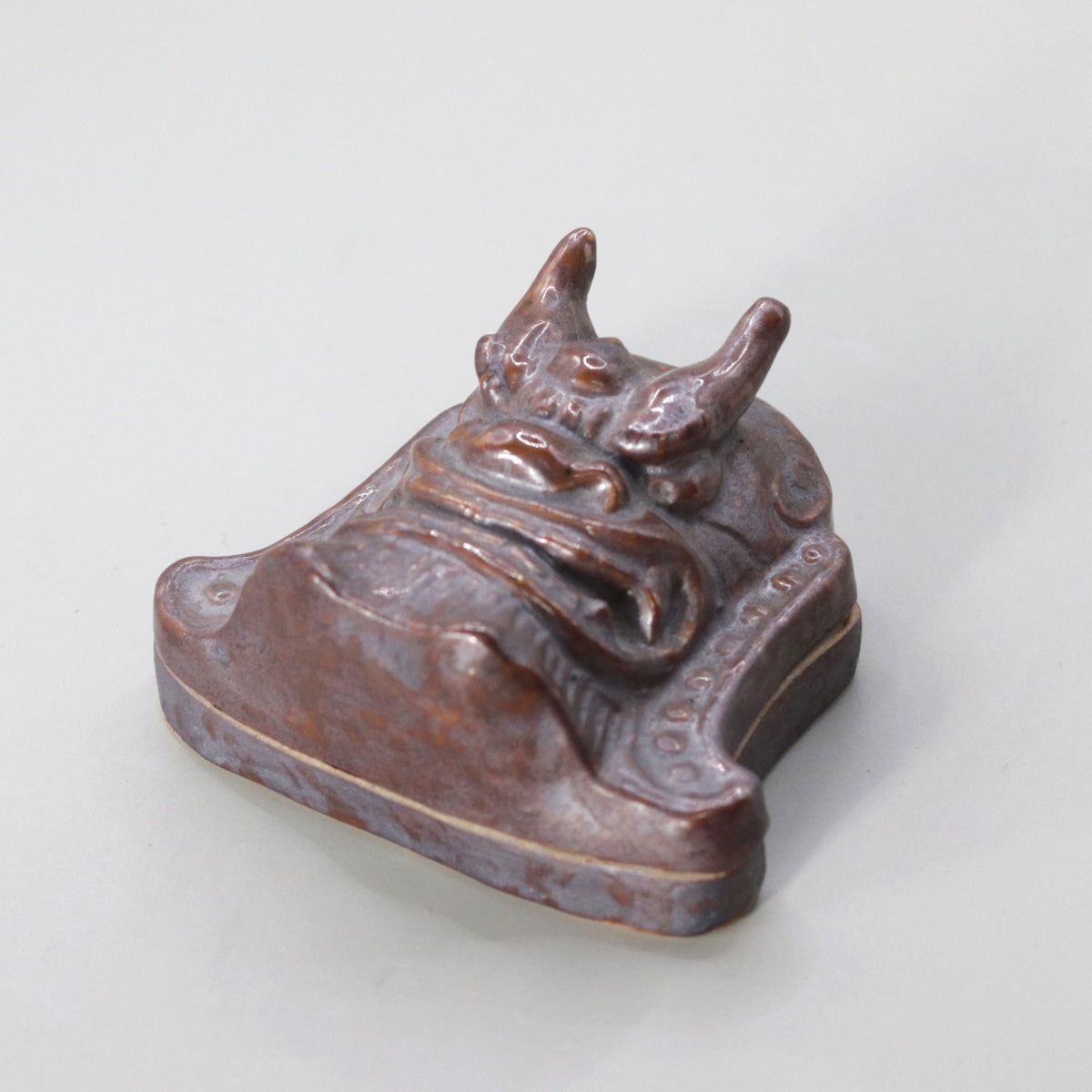
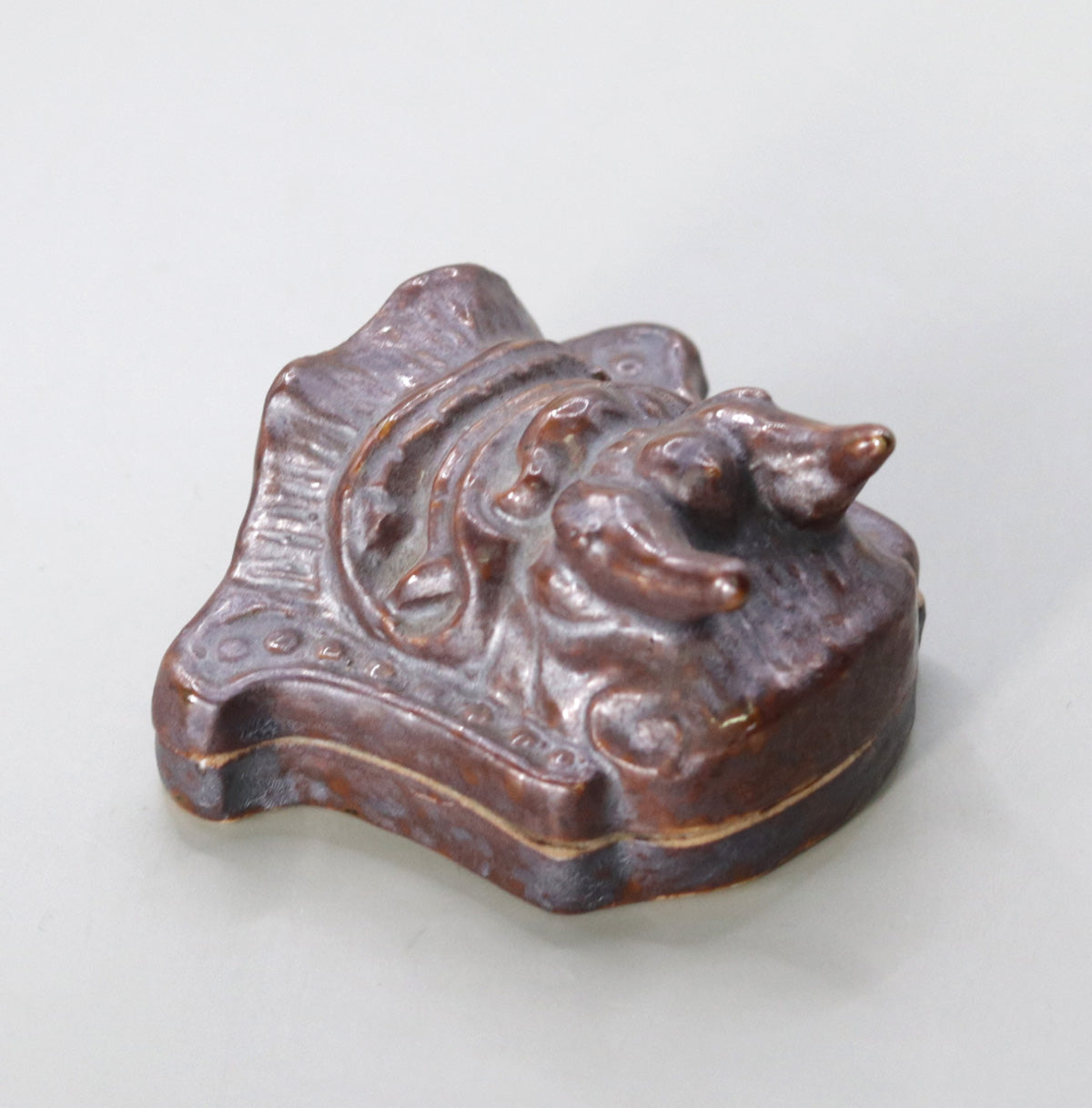
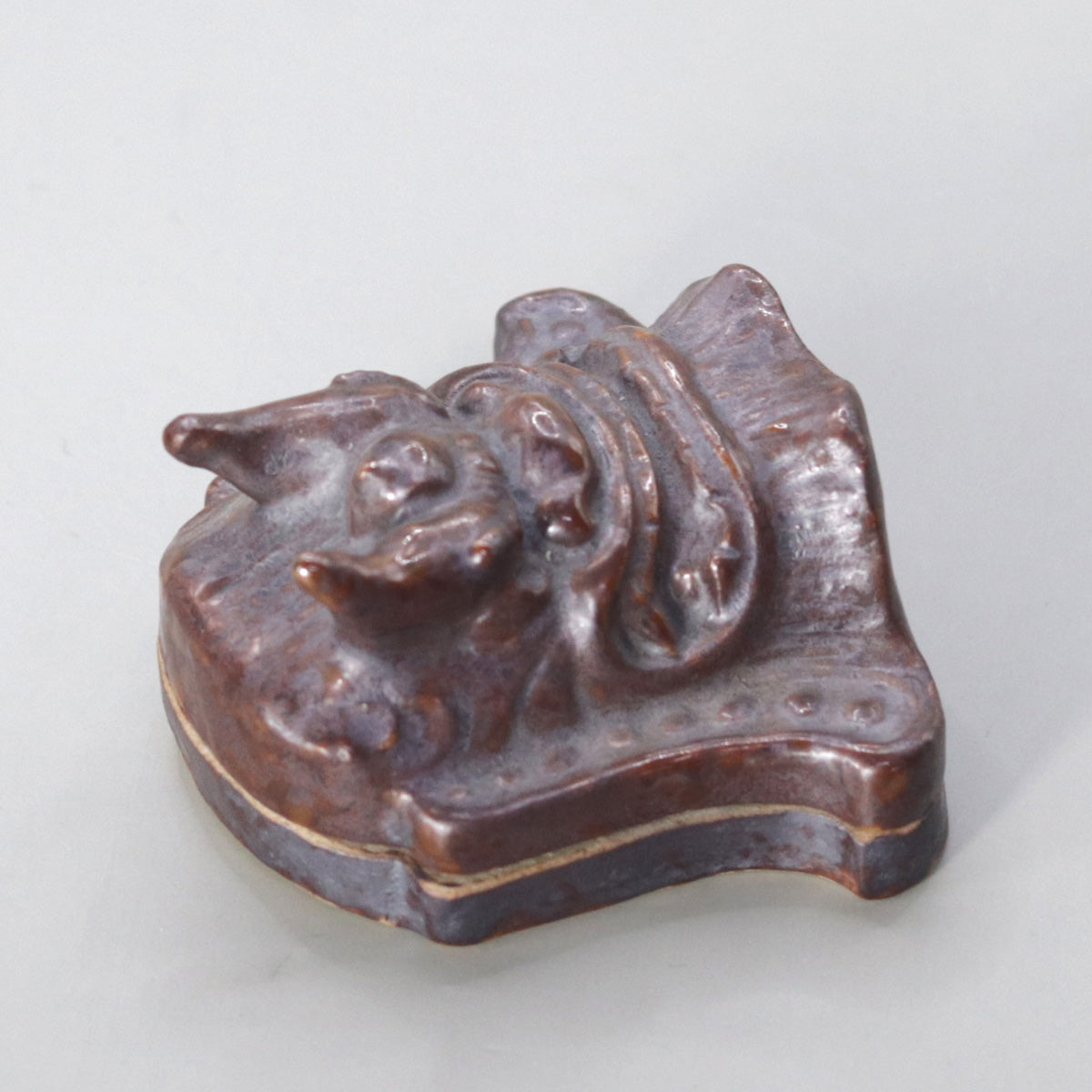
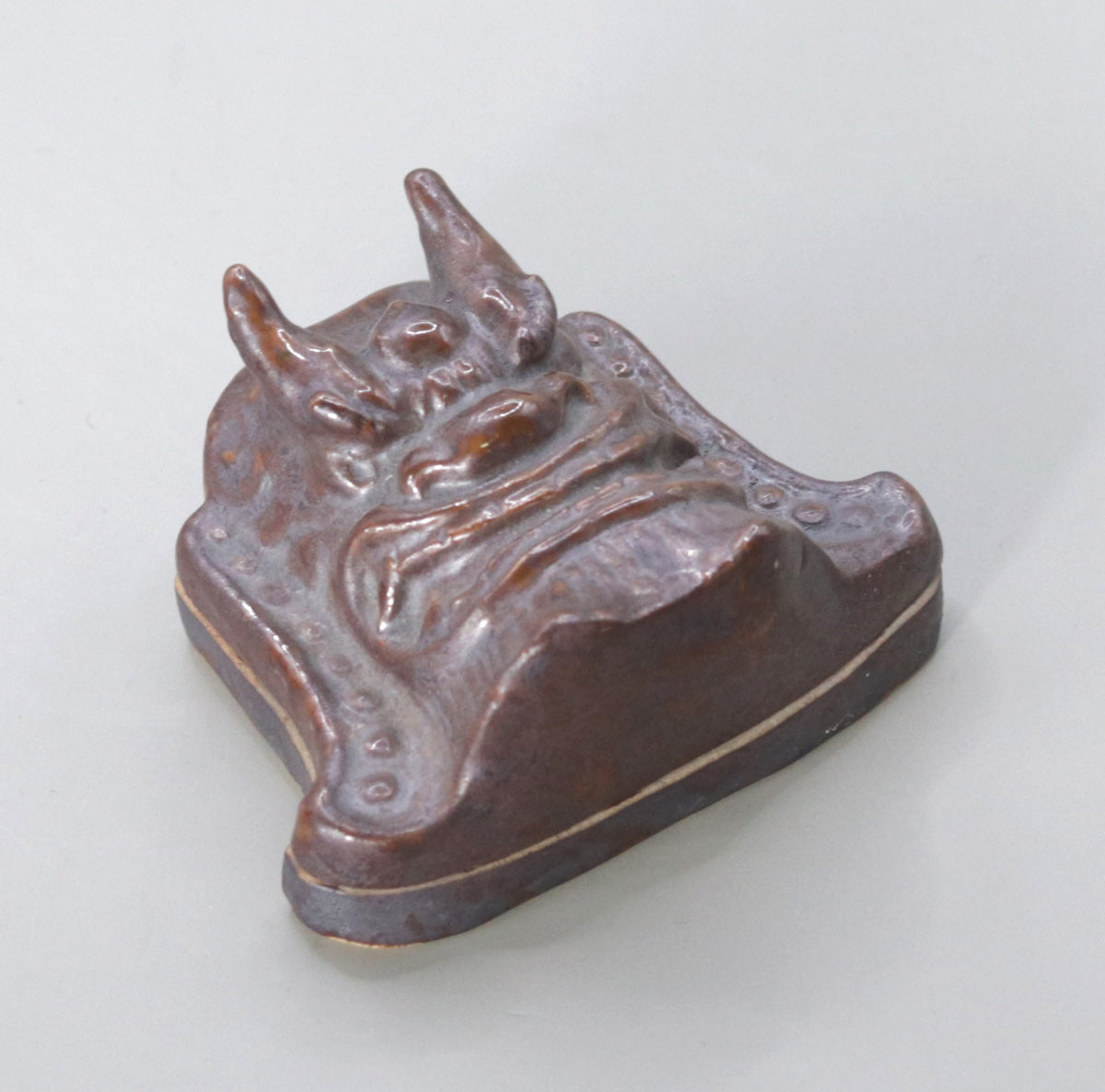
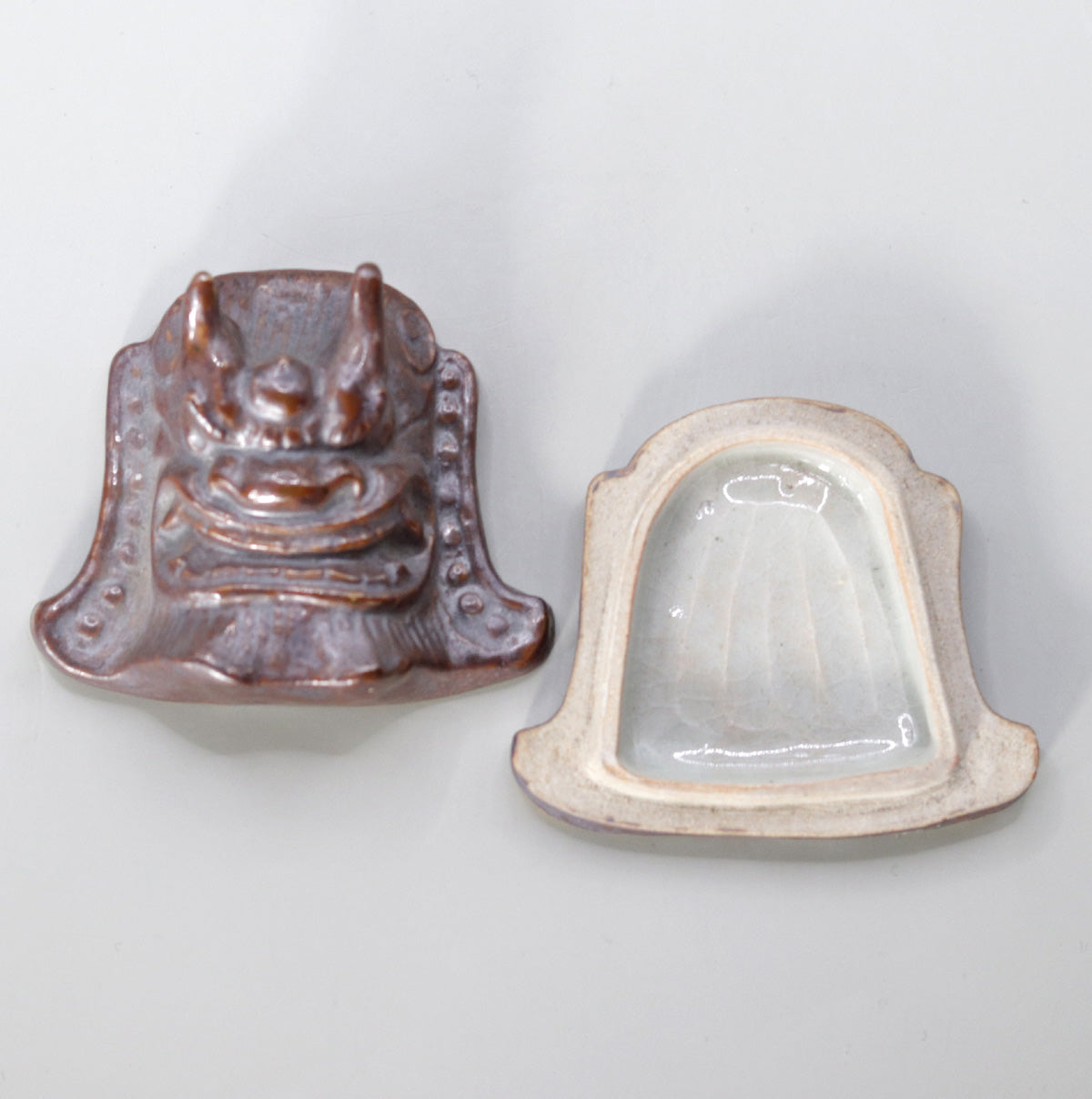
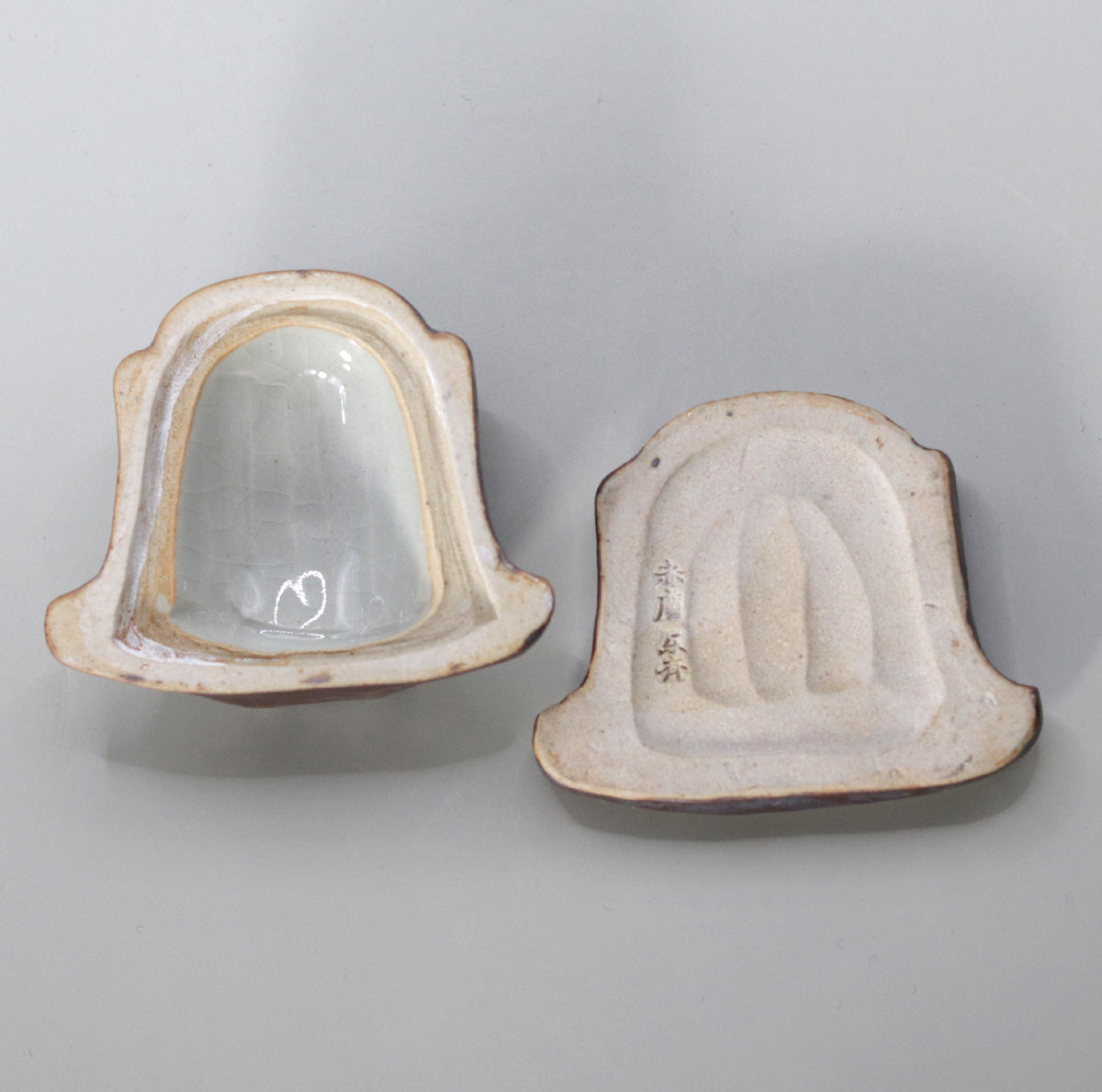
Multi-Column
-
[I will send it to you quickly and carefully]
We carefully package each product in a way that suits it best.
Also, delivery times vary depending on the piece (vessel, etc.).
Items that already come with a box will be shipped within 1-3 days of the order date.
For items that require a box to be made after your order, it will take approximately 30 days for production to be completed and then shipped.
In either case, once we have confirmed your order, we will contact you by email to inform you of the delivery date.
-
[Requests when purchasing pottery]
Even products that look the same may differ slightly in color, shape, size, etc.
The way the glaze is used, the power of the kiln, the firing method, the season, and the humidity also affect the appearance of the pottery.
Please understand the individuality of each piece of pottery and enjoy the unique warmth of handmade.
